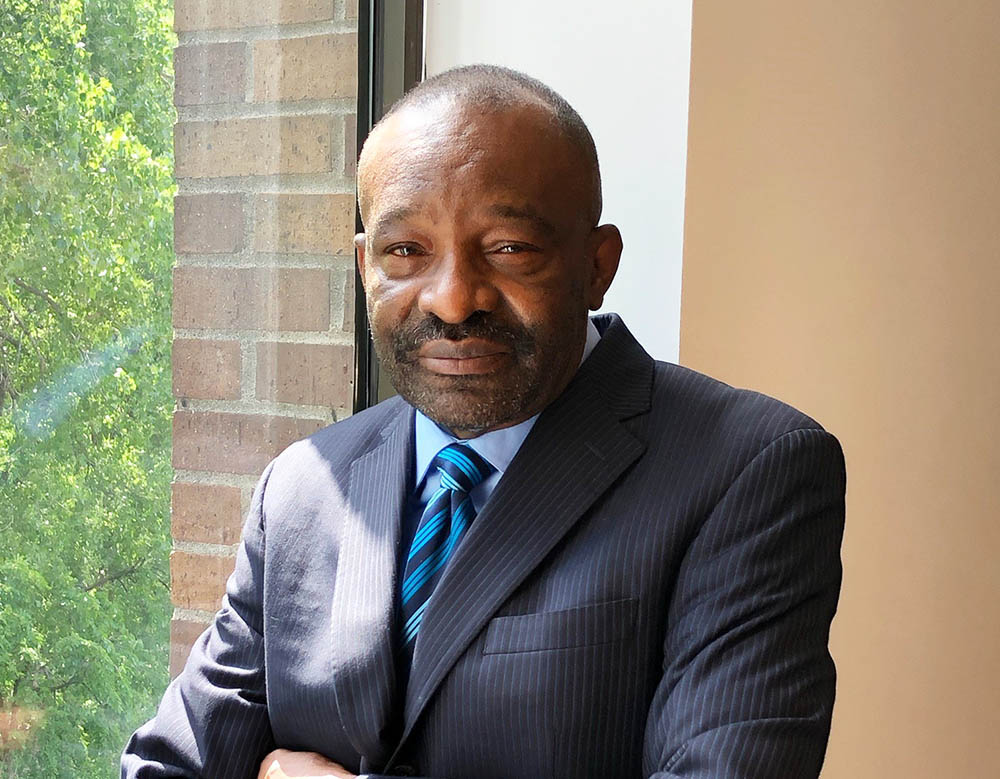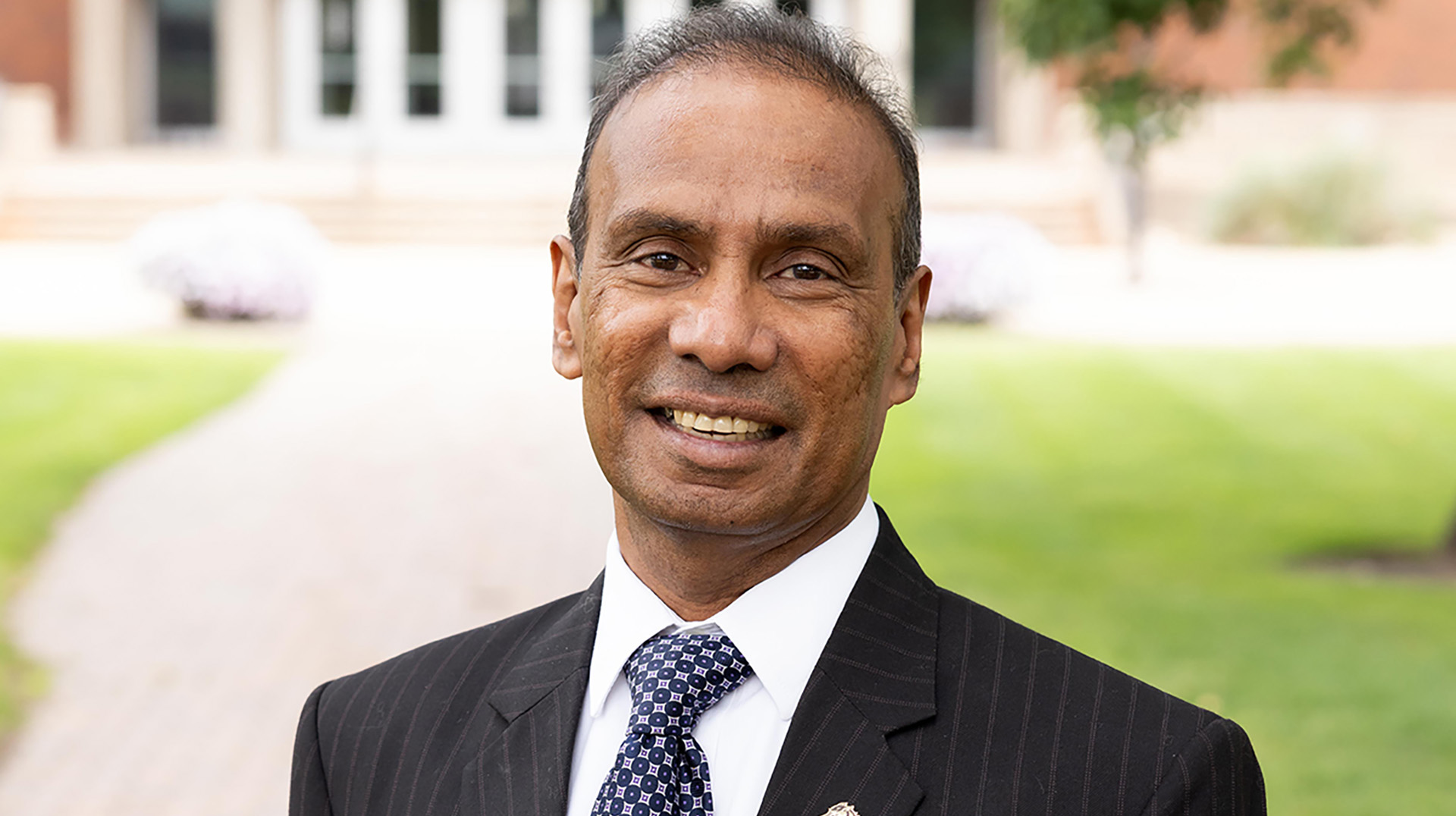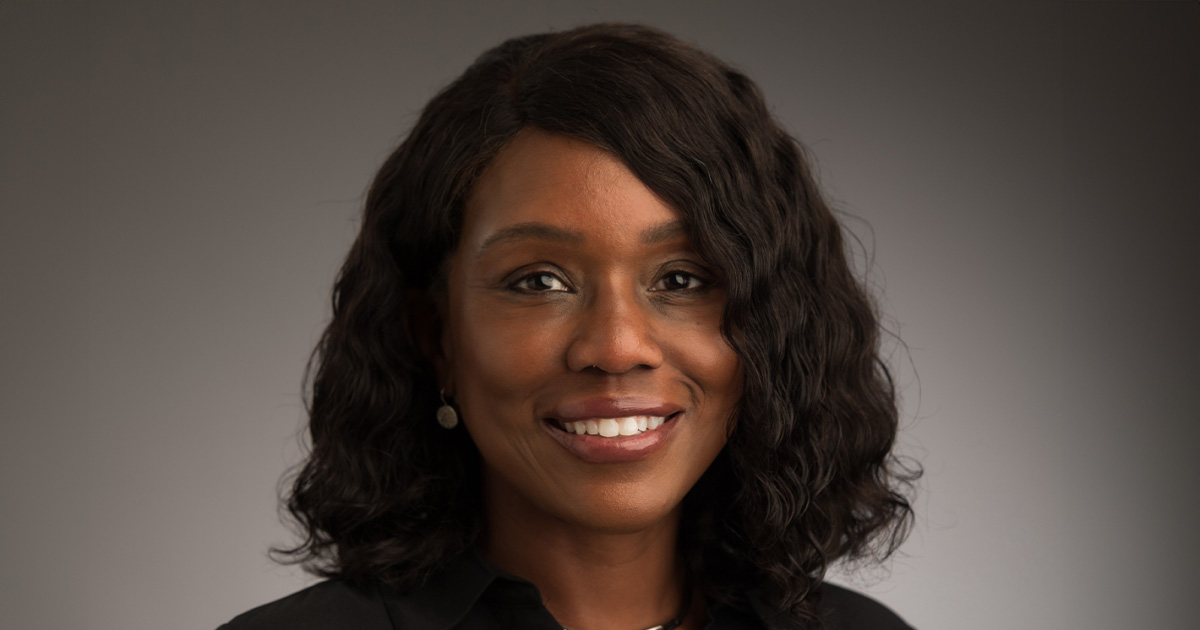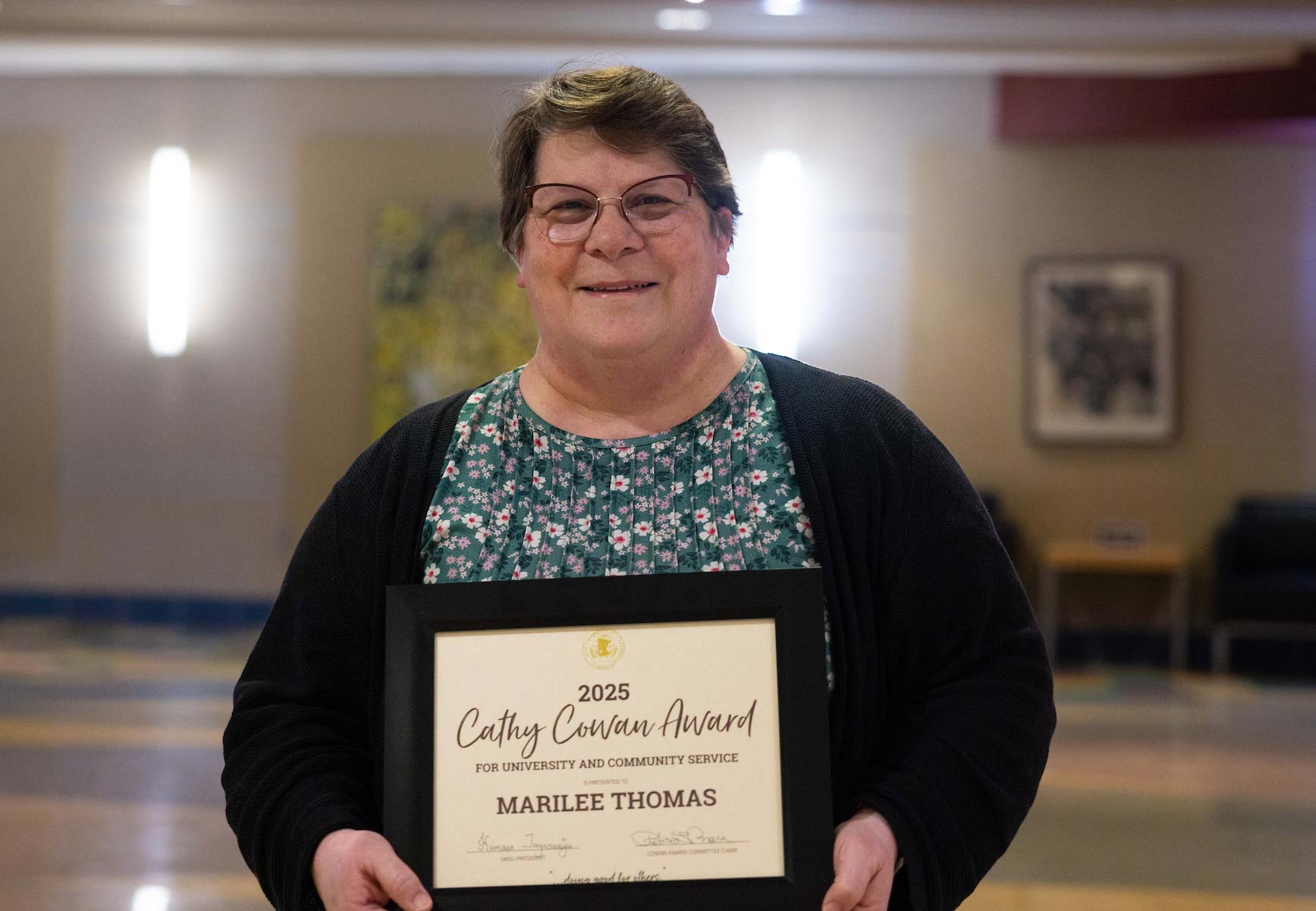Clarence Hightower ’77 Sees Shift in Attitudes Toward Policing, Racial Unity
Published Tuesday, June 16, 2020
SMSU alumnus Clarence Hightower felt “outrage” when he first viewed the George Floyd video. “I did not understand how one officer could participate in that climate, and have three additional officers stand by and watch,” he said about the video that showed Floyd laying on the ground, handcuffed, with a Minneapolis policeman’s knee on this neck. Floyd died as a result, and the event has triggered anti-police protests in Minnesota, across the country, and around the world.
“I am the product of history, and it was in 2008, when I was president of the Minneapolis Urban League, we published a book called The State of Blacks in Minnesota,” said Hightower. “The book walked through all the disparities that black folks have to deal with in this state. I was reminded of that as I saw what was going on.”
And while he was not surprised by the subsequent protests that followed Floyd’s death, he was surprised by the inclusiveness of those protests. “I’m not surprised by the pent-up feelings that folks in my community have in terms of harassment and isolation and being identified in that way,” he said. “I am surprised, though, that this is the event that caused the reaction it has with so many people because there have been so many other events just as heinous, but did not have this reaction. I’m surprised white folks have chosen this event as a reason for their involvement when there have been other events just as outrageous, and just as obviously wrong, and folks sat on the sidelines.”
Hightower is 1977 alumnus of SMSU and is currently the Executive Director of the Community Action Partnership of Hennepin County, a position he began in April of this year. He held a similar position for the counties of Ramsey and Washington for 12 years. Prior to that Hightower spent 10 years as the President/CEO of the Minneapolis Urban League. His years of executive leadership in the Twin Cities nonprofit sector also includes serving as executive director of both The City, Inc. and the North Community YMCA. He was a member of the Minnesota State Colleges and Universities Board of Trustees from 2002-14, and served as chair the last two years.
He is a 2000 Alumni Achievement Award recipient, and in 2014 was honored with the Presidential Award at Commencement, just the second person to be so honored at SMSU.
Hightower earned his SMSU degree in Health and Physical Education, his master’s degree in Human and Community Service from George Williams College in Aurora, Illinois, and his doctorate in Urban Higher Education from Jackson State University, Jackson, Miss. An ordained minister, he has been senior pastor of New Bethel Missionary Baptist Church since 2005.
Hightower said he felt “very comfortable” at SMSU, where he played basketball for the Mustangs for four years. “SMSU gave me a totally different viewpoint of life,” he said. “I grew up in pretty much an all-black community and when I got to Southwest it allowed me to expand my understanding of humanity. Southwest was the premier university in providing services to folks with disabilities, and in my dorm, there were students who moved around in wheelchairs. I had never been exposed to that. I had white friends and white teammates on the basketball team, and that expanded my world view of humanity, and that experience changed my life.
“Having said that, there were incidents — not on campus, or in the Marshall community — that reminded me that I was black.”
He recalls a road trip to a neighboring state his freshman year. He was the only African American on the team, which was enjoying its pre-game meal one particular day. “We were sitting around laughing and joking. Half an hour into it, everyone was eating but me. It hadn’t dawned on me. Coach asked why I wasn’t served, and my understanding is, he was told they didn’t serve black people We all got up and left, and this was in 1973.”
On the other side of the coin, Hightower remembers regular conversations with the late trainer RA Colvin. “He would tell me, ‘Clarence, I talked to your mom and she told me if you got out of line for me to take care of you. I know he didn’t talk to her, but it was his reminder to me I had better keep my nose clean. He had me over to his house on two Thanksgivings I couldn’t make it back to Illinois. There were a lot of other Colvin-like events and moments at SMSU.”
Hightower said that peaceful protests are always welcome, and have been a part of U.S. history since the beginning. “Black folks have used multiple strategies to express their concern,” he said. “We have boycotted, we have marched, we have protested, had sit-ins and sit-outs, and I think that is appropriate. Anything you can do peacefully to bring attention to disparities and (unfair) treatment is appropriate. Violence, and destroying of property, is never acceptable, and never appropriate.”
Protests about police brutality and equal treatment for all individuals, have gone international. “I’m not surprised it was a tipping point for black folks; at some point we have to say ‘enough is enough,’ and that’s what happened here. In the ’50s we had a dispute about Civil Rights and Rosa Parks said ‘enough is enough, I’m not giving up my seat on the bus.’ I am surprised that for non-blacks, this is the thing that people are saying, ‘This is the event I’m going to be silent no longer.’ We have been treated that way for decades by the police,” he said.
Hightower said that data supports his belief that Minnesota has more disparities than any other state other than Mississippi. “Disparities in terms of wealth, housing, and employment — we have lived that. It’s not just that one event, it’s more systematic, it’s built into the system.”
Is the country ready to change? “I think there’s more people ready for change today than there were a month ago. Whether that’s enough to cause that change, I’m not going to say. When you look at the movement to reconsider policing and how community policing will take place, that’s a conversation that’s been around for 30 years in isolated parts of the country, and now it’s everywhere. (Recently) there was a legislative hearing about the topic in Minnesota.
“There’s more interest today. Whether that’s enough to move change, I’m not sure.”






